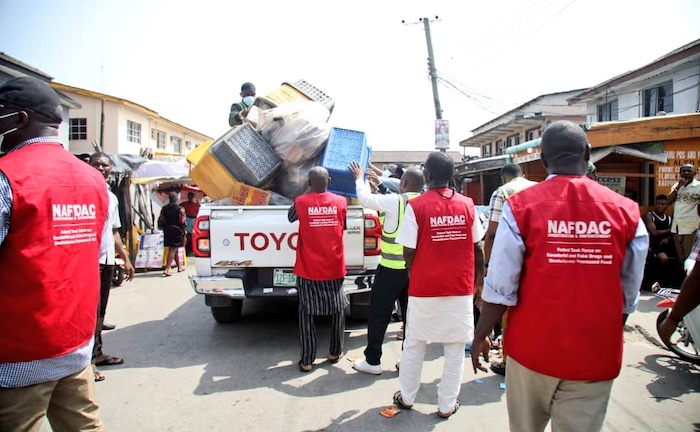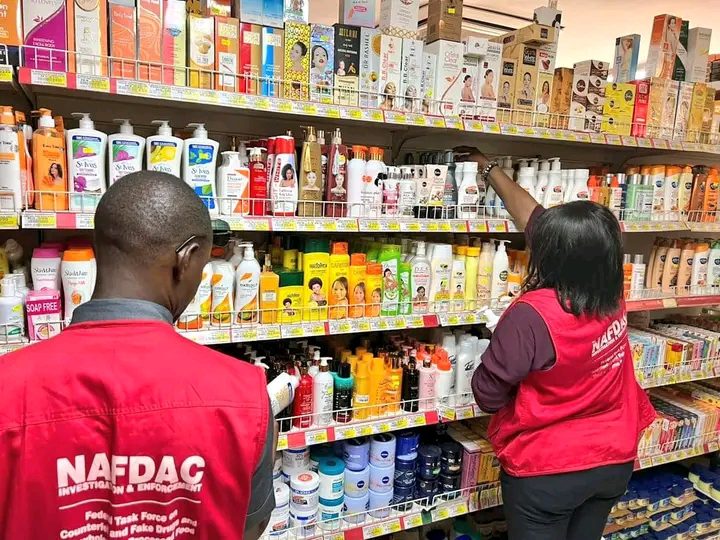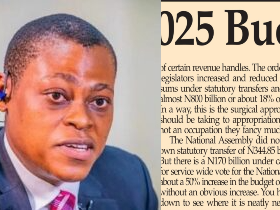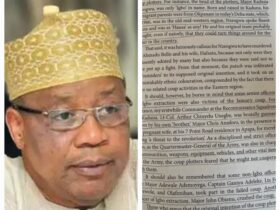Amid the ongoing crackdown on illicit drug trade in major markets across the country, the National Agency for Food and Drug Administration and Control (NAFDAC) announced yesterday that it has shut down more than 11,000 shops in the drug markets of Aba, Onitsha, and Idumota.
Also, 40 individuals have been arrested for their involvement in selling unregistered and dangerous drugs.
During a tour of the agency’s warehouse in Apapa, Lagos, NAFDAC’s Director-General, Prof. Mojisola Christianah Adeyeye, revealed that over 77 truckloads of illicit and counterfeit drugs have been confiscated. Of these, 27 truckloads were seized from Idumota, while 30 were from Onitsha and 20 from Aba.

Adeyeye further disclosed that 3,027 shops were closed in Idumota, 4,000 in Onitsha—where the operation is only 20 per cent complete—and another 4,000 in the Osisioma area of Aba.
She said: “We found vaccines that are not supposed to be stored outside the refrigerator. We found controlled substances and condoms that are supposed to have been destroyed since 2022. We found products donated by USAID. We found Antiretrovirals for free use.
“We found tramadol, container loads of analgin that had been banned in Nigeria before my time. How did it get into the country or market? We have found machines that they are using to change the dates of drugs that are supposed to have expired in 2022 or 2023.
They will change it to 2028 and people will take and keep not getting well.”
READ ALSO: NAFDAC Uncovers Counterfeit Drugs, Repackaged Medications Sold Inside Lagos Market
She said the evacuated drugs are running into trillions.
She explained that the operation, which has been ongoing for over three weeks, was made possible with the support of the National Security Adviser (NSA) and the Pharmacists Council of Nigeria (PCN).
Adeyeye further addressed concerns from traders who claimed the agency was disrupting their businesses.
“We are not disturbing trade. We are protecting lives. We are trying to safeguard the future of our young people from becoming victims of harmful drugs.
“We are trying to make sure that patients survive from bad medicine. We are trying to make sure that if you have hypertension you will get your hypertension relieved because you are taking good medicine.”
She lamented that NAFDAC’s findings during the operation have been alarming.
“In addition to expired medications, the agency discovered drugs stored in unsanitary conditions, including toilets and poorly ventilated warehouses without windows.
Among the seized drugs were Tramadol 225mg, a potent opioid capable of causing severe neurological damage, and Tapfradol, a dangerous combination of tapentadol and carisoprodol, which has been banned in India.
Adeyeye disclosed that many of the drugs seized were smuggled into the country and are not registered in NAFDAC’s database.
“We are seeing drugs stored in conditions that make them even more harmful. These include products requiring refrigeration, like vaccines, being kept at room temperature,” she explained.
Adeyeye acknowledged the resource constraints faced by the agency, citing a lack of sufficient staff and funding. “Our staff are doing the work of five people because we don’t have enough personnel.”
She urged the federal government to provide more support to NAFDAC.
Addressing Nigerians, Adeyeye advised caution when purchasing medications. “If you bought medicine from a street corner, throw it away. Only buy from a reputable pharmacy store,” she urged, emphasising the critical role of parents in monitoring their children’s activities to prevent drug abuse.
She also called on the federal government to tighten border security to prevent the smuggling of counterfeit drugs.
“The porous borders are making our job more difficult. We need more manpower at the borders to stop these harmful products from entering the country.
NAFDAC is far from finished with its mission. The agency plans to expand its operations to other states, working closely with sister agencies to ensure compliance with regulations.
“This is just the beginning. We will not stop until the menace of substandard and falsified drugs is eradicated from Nigeria,” Adeyeye vowed.









Leave a Reply